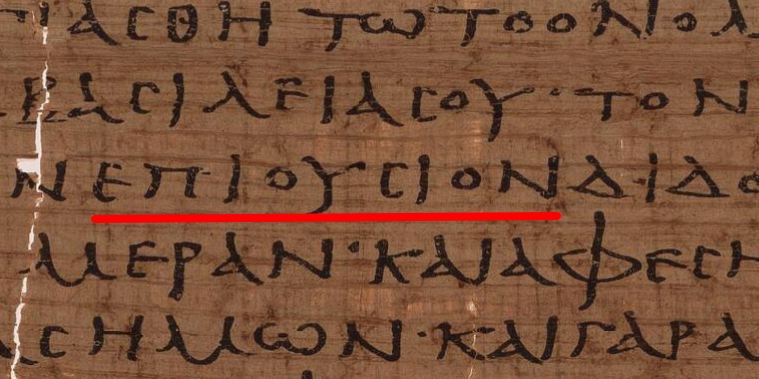the full line being “Give us today our epiousion bread”
Today, most scholars reject the translation of epiousion as meaning daily. The word daily only has a weak connection to any proposed etymologies for epiousion. Moreover, all other instances of “daily” in the English New Testament translate hemera (ἡμέρα, “day”), which does not appear in this usage.[1][2] Because there are several other Greek words based on hemera that mean daily, no reason is apparent to use such an obscure word as epiousion.[4] The daily translation also makes the term redundant, with “this day” already making clear the bread is for the current day.[21]
i don’t think wikipedia mentions this but it has ‘pious’ in the middle



This gives me the odd realization that, were a method to travel through time ever discovered, there’s a chance one use-case for it might be a religious group traveling back to the origin point of their religious texts to correct errors that have made their way in since the original versions were written or spoken.
As in, changing the history to match their text? 🙃
That’s a novel right there baby
It’s been written. I can’t remember the name or author, but the crucifixion was very popular, and in the story may have accounted for the large crowds that day.
But then you could just go back and witness the events that the book tries to describe, so the book itself becomes irrelevant outside of just archaeology phd work.
Imagining the idea of a deeply religious person going back in time over and over again, going further and further back looking for Adam and Eve and finding very modern-looking humans going all the way back 200,000 years…
Nah, they’d probably give up after going back around 50,000 years and accidentally infecting the entire human population with the common cold, nearly killing off the species.